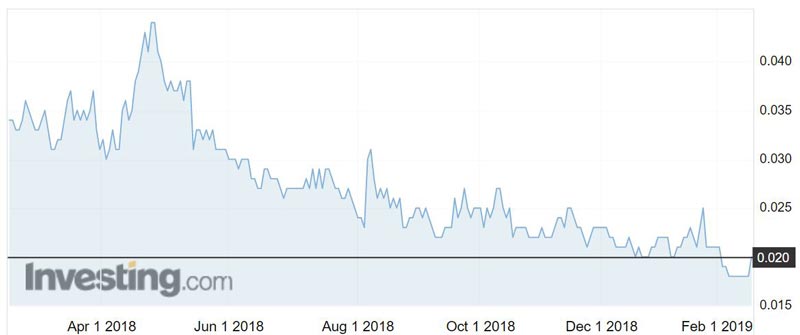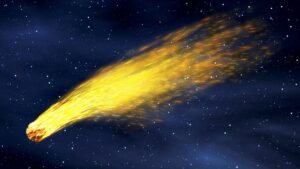Venture Minerals thinks now might be a good time to dust off its shelved iron ore mine

Pic: Getty Images
The strengthening iron ore price and increased interest from potential customers has prompted Venture Minerals to look at restarting its Riley “direct shipping ore” mine in Tasmania.
Direct shipping ore (DSO) refers to minerals that require only simple crushing before they are exported, which keeps costs low.
Investors seemed to like the idea, sending shares up over 11 per cent to an intra-day high of 2c on Monday — albeit on small volume.
Venture (ASX:VMS) mothballed the Riley mine in August 2014 shortly after it suspended clearing of the plant site.
By August 2014 the price of iron ore had halved from its all-time high of almost $US190 a tonne.
Market conditions continued to deteriorate and by December 2015, the iron ore price had sunk to a record low of less than $US40 a tonne.
However, after trading for several months between $US60 and $US70 a tonne last year, the price is now heading north and closed last week out at almost $US90 a tonne.

“Fears of an iron ore shortage due to the Vale tailing dam accident in Brazil spurred iron ore prices during the Chinese Lunar New Year holidays, which is normally a time of thin trading activity,” S&P Global Patts senior managing editor Paul Bartholomew told Stockhead.
Tailings, also called mine dumps, are the materials left over after processing ore to separate valuable material from uneconomic material.
The world’s largest iron ore miner was ordered to cut its annual production by about 30 million tonnes — around 2 per cent of seaborne supply — at one of its mines to improve safety.
That is on top of a further 40 million tonnes per annum of production that would be removed from the market as Vale decommissions all of its upstream tailings dams, Business Insider Australia reported earlier in February.
The benchmark iron ore price published by S&P Global Platts climbed from $US86.65 per tonne on February 4 (first day of the Chinese holiday) to $94.20 per tonne by the end of that week.
From the day the accident at Vale’s mine occurred to the end of the holidays on February 8, the price rose by almost $US19 per tonne, Mr Bartholomew said.
However, Mr Bartholomew noted that iron ore prices have “calmed down” somewhat due to the weak steel market in China.
Venture Minerals told investors the recent events at Vale’s mines in Brazil could sustain current price levels for at least the near-term, which “may suit the production ready nature of the Riley project”.
- Subscribe to our daily newsletter
- Bookmark this link for small cap news
- Join our small cap Facebook group
- Follow us on Facebook or Twitter
The company believes the project is a “quick to market opportunity” because it has already completed everything it needs to start mining.
“The previous work at the Riley Iron Ore Mine has placed Venture in a strong position and with the iron ore price improving it affords the company the opportunity to commence production with relatively short notice,” managing director Andrew Radonjic said.
Venture Minerals says it has also received interest from “several third parties” in the iron ore from the Riley mine.
The company will undertake a review of the project at the same time as it works to update the scoping study on the neighbouring Mount Lindsay tin and tungsten project.
UNLOCK INSIGHTS
Discover the untold stories of emerging ASX stocks.
Daily news and expert analysis, it's free to subscribe.
By proceeding, you confirm you understand that we handle personal information in accordance with our Privacy Policy.








